|
i Back to New Babylon and the intriguingly surreal world of Seb Doubinsky’s imaginary city states of a neodystopian future. I’ve actually only read one of these books, the Paperclip’s predecessor, the Invisible, and that alone was enough to merit further interest, so when the publisher offered me a free copy of this book to review I was all for it. The good thing about this series is that while all the books are interconnected, they seem to be perfectly readable as standalones. Each one tells its own story. And each one does it very succinctly, this book only took 100 minutes or so to get through and was well worth a read.
Trivia time… Operation Paperclip was a secret US intelligence program in which more than 1,600 German scientists, engineers, and technicians were taken from former nazi Deutschland to the United States for government employment after the end of World War II in Europe, between 1945 and 1959. That’s just so you don’t think this is a novel about office supplies. In the story, a grandchild of one of these nazis named Klaus Wagner dreams Elon Musky dreams about rescuing mankind by taking them to space. Kurt is your prototypical megalomaniac who echoed his granddaddy politics in some quietly disturbing ways, though seems to be completely unaware of it. Klaus, understandably, rubs many people (his security detail, a famous actress one night stand, etc.) the wrong way, whether they are directly in his life or just know of him, so he ends up being a target of various, variously amusing assassination plots. There’s also a charmingly sentient feathered character for some offbeat commentary. And that’s basically it, an entertaining and clever story, subtly (and darkly) humorous with just the right kind of wacky that the author does so expertly. All in all, a quick fun read. I enjoyed it very much and would definitely read other books in the series. Might the publisher be so kind as to…? Anyway. This book…just the right kind of weird. Recommended.
0 Comments
For having been aware of Bechdel for a long time, I’ve actually never read any of her comics. Instead I watched a musical of her best selling memoir…and didn’t especially like it. And that was it, until now, this one piqued my interest and came at just the right time, since I read a wider variety of graphic novels now, which is pretty much most things our library deems fit to acquire outside of manga.
Why the interest, though? Is it because I’ve my own complicatedly obsessive relationship with fitness? Possibly. It certainly wasn’t the memoir aspect of it, because I don’t care for memoirs and Bechdel has essentially made her career out of her life, the good, the strange and the ugly of it. For me, that sort of exposure is difficult to fathom, but obviously it works for her and actually to her credit…it genuinely makes for compelling reading. Surprisingly so, especially considering the length of this book, not just the length, but the density of the text…this is a graphic novel that leans very heavily into the novel aspect of its definition and comes out on top. At first it seemed like a fairly generic essay on the prevalent gym culture, fitness fads, etc., albeit from a personal perspective of the author and then it turned into a biographical account, wherein decade by decade Bechdel took you through her life as a fitness junkie, trend after trend, discipline after discipline, but all done within the framework of her actual life, love, career, etc. Or maybe it’s the other way around…her life as framed by fitness obsessions. Either way, it’s surprisingly (for someone who isn’t a fan of memoirs) compelling. And really well done. It isn’t just Bechdel’s life, though, she cleverly juxtaposes it with some famous writerly names of years past, from Romantics to Beatniks, anyone who thought to forge their way outside of the box and through putting in enough steps in the nature to please the most demanding of wearable fitness devices. I really enjoyed those literary digressions and actually learned a thing or two about those individuals. That was all about the novel, but the graphic aspect is excellent in and of itself. Sometimes these cartoon memoirs can be so…well, cartoonish. But this was excellent indeed, really great art and colors, interesting panel choices including what appears to be large two page watercolors, great details. Bechdel has been at it all her life and her talent is apparent. Wherein her fitness levels are just…intimidating. Whatever the craze…biking, yoga, pilates, etc. she’s been there, done that and got the performance fleece. One might get tired just reading about it. You gotta admire the commitment, though. Well done. On both fronts. An enjoyable read, I liked it. Might read more of the author’s work now. Recommended. It seems that all of the Icelandic fiction I’ve read up till now was genre variety, from mystery thrillers to ghost stories, featuring primarily contemporary settings (outside of flashbacks). It was time for proper literature, a work of historical fiction no less. And so…Red Milk. Infinitely more ominous than all other milks out there. The most nourishing of substances tinged with blood.
This novel, despite its slender size, is a sledgehammer albeit a cleverly subtle one. It speaks more to the banality of evil than its grandiosity. At a very basic level it’s a portrait of a young man as a neo nazi. Set during and in the decades following WWII, it’s a story of a young man of Icelandic and Norwegian descent growing up and coming to age admiring fascism more and more and then getting directly involved with it, setting up a local neo nazi party. The narrative comprises biographical sketches, epistolary entries of various correspondences and more until slowly the grand design of a person emerges. It’s a really ingenious approach to something that might have been easily done in a much cruder fashion with much broader brushstrokes. The author was inspired by a real life person and real life events in creating this book and thus brought to it all the complexity of real life and every effort to understand how a person like that might come to be. Is it a seemingly innocuous conglomeration of random occurrences, such as a quisling for an uncle or a neighbor’s language club or it is more than that? What does it take for someone to develop such a dangerous and horrible system of beliefs? What a resonant question to contemplate in this day and age of the ever increasing radical ideologies. At any rate, from both psychological and pure readership perspective, this made for a fascinating read. All the more so because Iceland is a country just far enough off the sidelines to have been only distantly affected by WWII, comparable to the rest of Europe, but apparently it hasn’t emerged completely unscathed either, for an event of such grand evil it’s only fitting to ripple so far and so wide and so malevolently. So a historical perspective…also covered. All in all, a great find and an excellent introduction to a new author for me. I’d certainly read more of his work, given a chance. Very good read indeed. Recommended. Thanks Netgalley. I can think of so many things to love in and about Amsterdam. Alas, this book wouldn’t be one of them. Surprisingly so, since I’m very much a fan of Scandinavian noir. Maybe I don’t love Scandinoir classics? This is, after all, from 1962. Of course, some things from 1962 age really well, like Jim Carrey or Michelle Yeoh or The Manchurian Candidate or any Elvis’ song from that year…and some things less so.
Literature (most things, really) dates itself in many different ways, sometimes it’s the expired zeitgeist of the time, sometimes it’s the general tone, sometimes it’s whatever used to be hip and in vogue and just didn’t travel through time…sometimes it’s something difficult to describe, like the way people spoke in old movies, a forgotten cadence. This book dates itself in one of those difficult to explain ways, nothing overt or disturbing to modern readers, no grotesque sexism/racism/etc., and I’m sure this was very hip for its time, but the style of the narrative just really didn’t work for me. It’s a classic three act story and quite short (though it doesn’t read like it) with act one finding Martin being arrested for the murder of his ex lover Elsa, act 2 traveling back in time to trace their love affair and act 3, back to present day to sort of this mess and solve the crime. The detective Van Der Valk doesn’t seem to actually do all that much, considering he’s the star of the show and the subsequent series. And Martin isn’t all that likeable. Act 2 was interesting enough as far as historical fiction goes, post WWII Amsterdam and all that, but the rest of the novel didn’t really engage and neither did the characters. The entire love triangle is overwrought and kind of sordid and contrived. The mystery is underwhelming and the resolution is fairly bathetic. Not sure I can adequately describe why writing didn’t work for me, there was a very specific sort of density to the narrative that seems to be appropriate to the time, but not appealing to this reader. There was a strangely Kafkaesque aspect to Martin’s predicament and Van Der Valk’s detecting methods. Maybe the legal system in Scandinavian has changed since or maybe their fiction has just dramatically improved, but nowadays they produce some of the most excellently moody brooding mystery thrillers out there. This book doesn’t quite measure up. Mind you, I wouldn’t mind checking out the recent PBS adaptation of it. Modern day interpretations of the 1960s stories seem to be in general much more enjoyable. Best of both worlds. To paraphrase the classic…Should old thrillers be forgot and never brought to mind? Well, Brash publishers don’t believe that and so they’ve made it their mission to give thrillers of years past a new digital life. Sometimes it’s books that well deserve a second chance, sometimes it’s books one can do without. This one is somewhere in between.
A first in series featuring detective Donahoo of San Diego police, of gruff Irish charm, of considerable detecting skill and no ambition past solving crimes. So much so that he repeatedly passes up promotions. In this, his first fictional outing, Donahoo is supposed to solve a convoluted multiplayer plot to essentially improve a neighborhood using some really drastic measures. The multiple antagonist thing is presumably the thing that’s the main original attraction here and it is creative enough, but the much more prominent draw is the writing itself, the darkly humorous cop banter, if you’re into that sort of thing. If not, there’s plenty and I mean plenty of action (and even some romance, can’t have Donahoo get lonesome) to entertain you. But the thing is some of that banter might not be for everyone, specifically not in this politically correct day and age we live in. Because it is so blatantly racist and homophobic at times, it’s just kinda takes you aback. Mind you and this is a really important distinction, it isn’t racist and homophobic in intent, purely in language. But since the PC police doesn’t really make that distinction, it can be kind of jarring to read some of this. Of course, yeah, it sounds very realistic, and people really did say all those things and not that long ago, this book isn’t really that old, 1996 or so, originally, going by the story. It just makes the banter something of an acquired taste and highlights how far we’ve come as a society, albeit strictly linguistically, it seems. So anyway, there you have it, a quick, fun, action driven police procedural thriller with buddy cop comedy elements from a different era. The San Diego location was an added bonus. Thanks to the publisher for providing a free copy for review purposes. Stay brash, folks. The Devil in the Gallery How Scandal, Shock, and Rivalry Shaped the Art World by Noah Charney5/24/2021 This book has been waiting on my Kindle for quite a while since grabbing it from Netgalley with a goal to further my fine arts self education. It’s by a renown author and art expert and professor, who specializes in art crime. It’s reasonable in length, accessible in style and even has art in it, albeit viewing some of the world’s greatest art on a small black and white screen is far from ideal.
I love art. Enjoying it in museums (one day, again) and reading about it (an anytime pleasure). I’ve not too long ago read a book about art frauds for which this author provided a preface. This book takes a different approach, specializing in famous scandals and rivalries, from the well known (legendary really in that respect) figures to the lesser known but nevertheless bitter feuds and salacious skeletons in closets. And, of course, all the great works these rivalries have inspired. Consider, Sistine Chapel…Raphael’s backfired trick on Michelangelo. That’s two Teenage Ninja Mutant Turtles right there. In fact, this book makes an excellent case for why Raphael should have been the Donatello of the team, it’s a generational thing. That’s just one of the great many randomly awesome things you’ll learn from reading this book. It isn’t just about art, it’s about psychology and sociology. Things that explain why the two of the world’s wealthiest artists produce art in factory like environments. And graffiti wars. And collector’s markets. Whether you’re interested in art for art’s sake or as a business investment or as a conversation subject, whether you’re passionate about the great masters’ lives or works or even if you just like a good scandal or many…there’s something in this book you’ll enjoy. I enjoyed all of it. It was very much like attending an engaging erudite and entertaining lecture for the sheer pleasure of self edification. Whatever madness coursed through artists’ veins, whatever wildness guided their lives and their brushes, the beauty they’ve given us is undeniable. And this book it for people who can’t resist a good behind the scenes story. Recommended. Thanks Netgalley. Flash Forward: An Illustrated Guide to Possible (and Not So Possible) Tomorrows by Rose Eveleth5/22/2021 I don’t do podcasts, so I’ve never heard of this or the author prior to discovering this book in our library’s latest digital catalog additions, but what an excellent find. In fact, if I were to get into podcasts, this would definitely be right up my alley.
Flash Forward is a perfect blend of science, educated speculation and speculative fiction. The speculation is done in essay form and the fiction selections are done in graphic form. So this isn’t exactly a graphic novel, this is more of a pop science work of nonfiction interspersed with comic book style stories all pondering the many possible futures to come. Much like Black Mirror in a way, albeit more scientifically based. All of that worked really well for me. Reading this book was like having a fascinating (albeit necessarily one sided) conversation with an intelligent futurist about the many directions life might take in the years to come. There are twelve themes to speculate upon here from animal rights to laws for space colonists, from smart cities to afterlife with robots and so much more. To author’s credit every single subject she selected for this book is fascinating and absolutely debate/ponder worthy. The art…the art kinds of drags behind in quality. In fact, the first two stories were plain ugly. Only a few of them I’d say were well rendered artistically, though most did have interesting stories to tell. The real star of the show here are the essays, the boggle the mind in just the right ways, doing what smart books do…inspiring thoughts. The accompanying comics seem almost tangential by comparison. Though admittedly it is a nice, fun and gimmicky/marketable pairing for publication. Overall, a fun and exciting read for science nerds who want to go beyond the fiction aspect of science fiction to contemplate the worlds to come. Meet The Edmonds family, people who have never watched or read any mirror related scary stories. They live in nowhere Utah, don’t use locks (or sound judgement) and apparently that relaxed lifestyle had made them into the kind of people who will comfortably accept an anonymous gift of a giant antique mirror delivered mysteriously at 2 am and immediately and unsuspiciously will hang it on their wall.
Seriously people? It’s like you’re asking to be horrorfied (not the same as horrified no matter what Word says). Mind you, they stick right by their new decoration despite increasingly creepy occurrences following its arrival. Sure enough, it’s no ordinary mirror sent by their antique loving aunt as a random gift through some sort of nighttime UPS. In fact, it’s a portal for a witch from 1700s who’s really into immortality. Now The Edmonds family has really stepped into it and will require the assistance of a knowledgeable Native American gentleman with time traveling skills to sort it out. And, of course, Craig’s sniper skills will help too. Because it’s/he’s just all American like that. A sniper turned sheriff turned witch slayer. Woohoo, go Craig. And that’s basically it. A bunch of genre basics thrown in together, thoroughly stirred and cooked reasonably well. Made for a quick fun read. Appears to be primed for series’ first. This was my first read by the author and it’s a fairly decent introduction as far as those things go. Thanks Netgalley. I’ve read Deady before. Backwater. Just revisited that review and it mentioned his stories being thoroughly decent takes on popular genre motifs. And sure enough, this novella definitely fits that bill. It may not be the most original of premises, in fact it is reminiscent of not one but two stories from the first season of Creepshow, but it’s well done and the premise is nostalgia steeped comic book flavored to perfection.
It’s the summer of 1975. Two young brothers and their mom have fled their abusive father and are all set for a fresh start in a small quaint beach town. Life holds every promise…sun soaked days and warm starlit nights by the ocean, girls, comic books conveniently left behind by the former tenants. Perfect…with sinister undertones, such as the looming threat of being found by their father or corpses washing up on the shore. And then there are sea monsters, ordered on a whim off the back of a comic and, unlike other cheap merch of the same providence, these guys live up to their name. With consistently decent writing, engaging characters and genuinely entertaining story, it’s fairly easy to ignore the story’s intense predictability. It’s what you might refer to as light on surprises, heavy on tentacles sort of thing. Overall a pretty fun quick read. Would fit right in Creepshow. Many thanks to the publishers for providing a free copy for review purposes. There’s a certain intersectionality in fiction between horrorspecific storytelling and music. From the musicians turned authors, notably Greg Kihn and Douglas Wynne, to authors who simply write about music. It’s often really good, Kihn and Wynne are both excellent. And occasionally less so, like Jeremy Wagner’s cheesy gorefest Armageddon Chord. And of course, sometimes authors will just write great scary stories featuring music without being able to strum a single chord, because, you know, fiction.
I don’t know if Lawson has a musical bone in his body. Joshi, who provided a very favorable foreword, does, specifically choir music, so there’s that, but the thing is no choral music experience is necessary to enjoy this book. The protagonist of it, young Lucien Beaumont, loves it enough for everyone. In fact, it’s his life’s greatest passion. Sadly, Lucien’s life otherwise in pretty much in the dumps. Since the death of his beloved father, whom he had idolized and imitated to the sartorially perfected classical music adoring tee, Lucien’s junkie mother has wasted away the family’s money, so no more mansion, no more private school, etc. Now the two of them are living in a condo in a small town and Lucien has to attend (gasp) public school. The boy still has his suits, but in his new school to no one’s surprise his impeccable personal style is about as appreciated as standoffish attitude and his general mien of exaggerated superiority…not at all. Eventually, beating the odds, he finds some simpatico souls and forms a choir of four with the end goal of eventually being able to perform a mysterious madrigal his father left behind. The madrigal is sinisterly titled, all but destroyed when Lucien finds it and appears to be nightmare inducing, but obsessions being that they are…Lucien can’t seem to stay away from it. No matter what. Not even when it becomes obvious the music might be demon’s work. Not even when it demands sacrifices to reveal itself. Not even when the cost of knowing it might be his very soul. So fun, right? Somewhere there is an intersectionality of Faust and Carrie that spawned this dark ditty. Though make no mistake, this has all the makings of an original. It might have gone the wrong way, especially with all the protagonists being high schoolers, it might have gone (gasp) YA. But rest assured, it’s much too dark and weird for the simplicity of young adult fiction. In fact, it very deliberately adds complexity and vulnerability to the main character, who otherwise might have very easily read as a sort of American Psycho Jr. Lucien is dramatically underparented (specifically unmothered and overfathered), there simply is no one there to guide him in any way or offer support. Plus for all his snobbery, he isn’t always wrong. Sometimes he’s just the kid who says the darndest things, about the decline of social standards, among other things, especially in relation to his new school which does its best to kill any spark of originality in the name of homogenous easily digestible blandness. In all those respects the book works well as a sort of social commentary and this both elevates the overall quality and gives dimensionality to a protagonist who might have otherwise ended up a cliched weirdo. For genre fans, there are plenty of scares. The book announces its deadly ending from the very beginning and makes good on that all the merrily murderous way through. For fans of classical and choral music this will definitely resonate (buh dum dum) on a profoundly dark and disturbing level. Overall a pretty fun quick read. Recommended. |
AuthorWrite something about yourself. No need to be fancy, just an overview. Archives
December 2023
Categories |
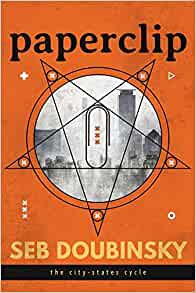

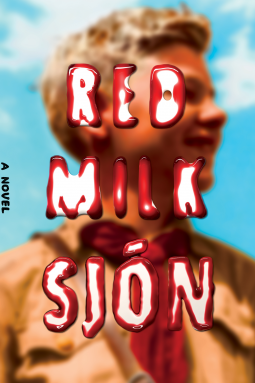
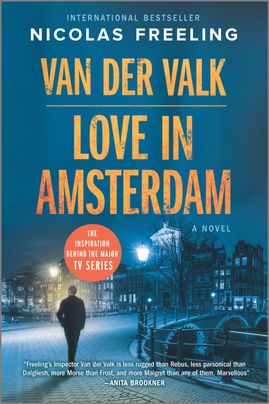
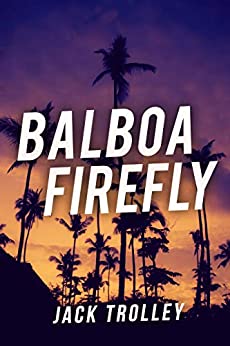
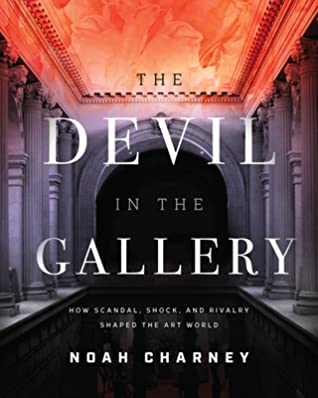
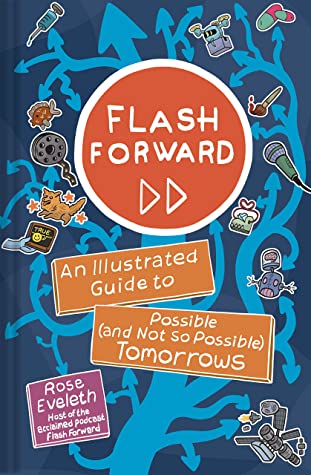

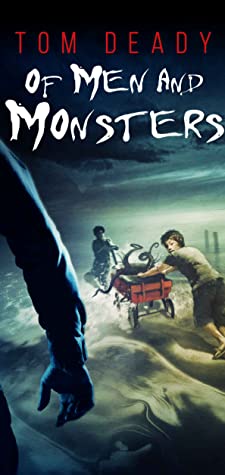
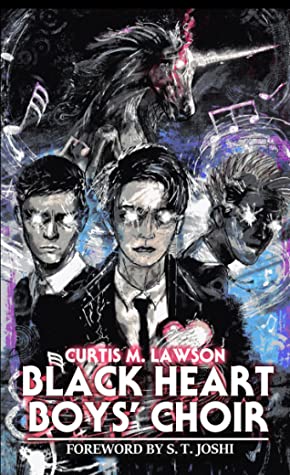
 RSS Feed
RSS Feed
